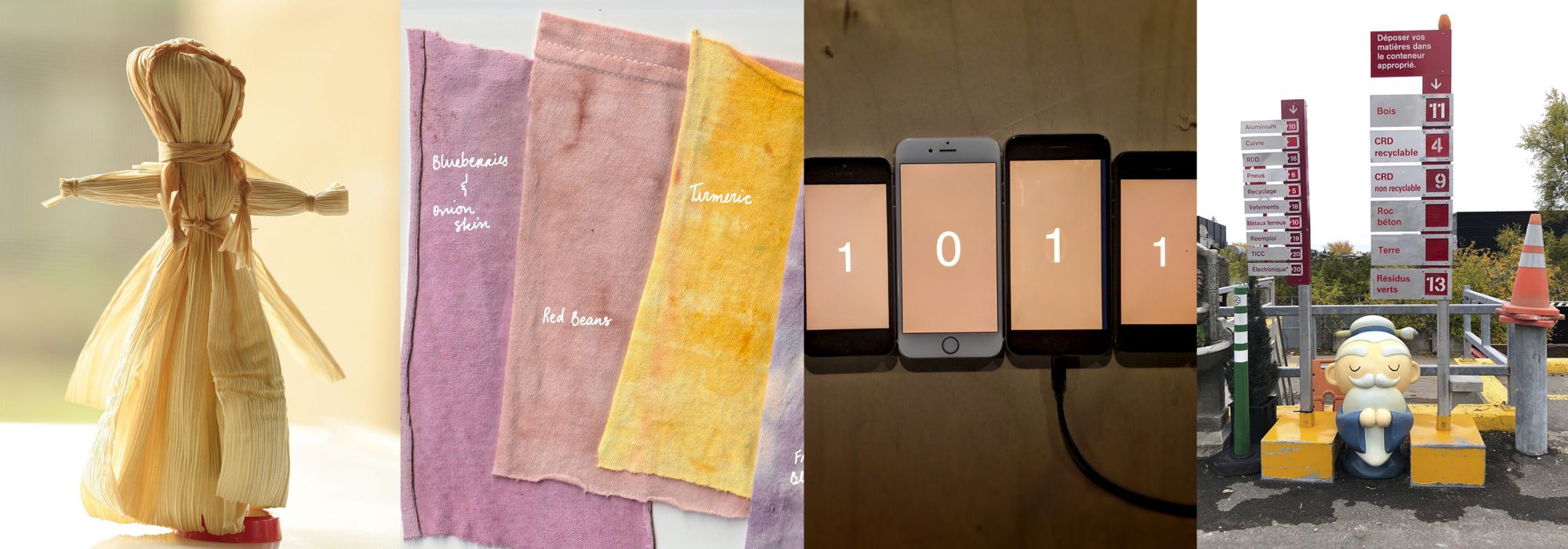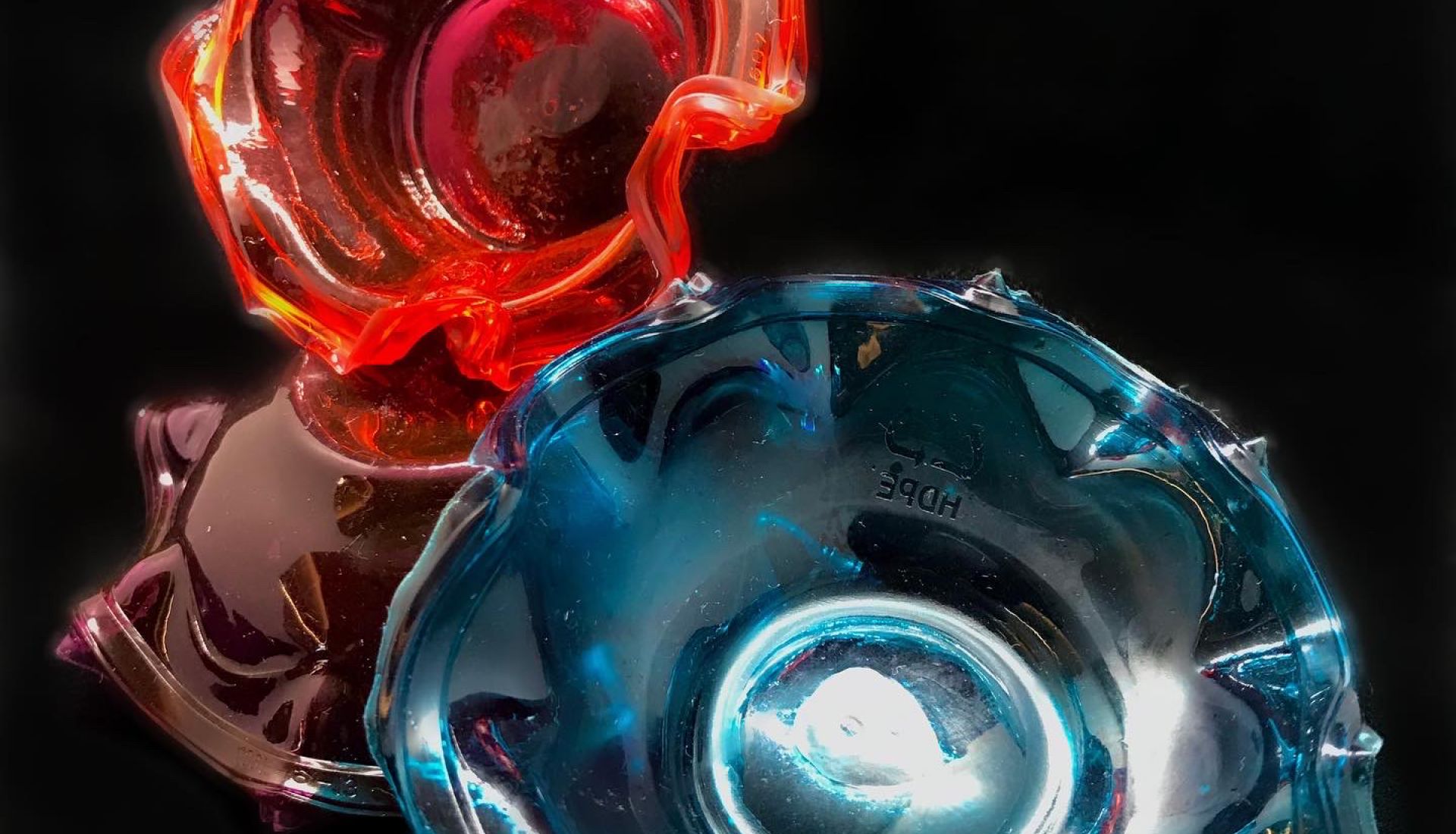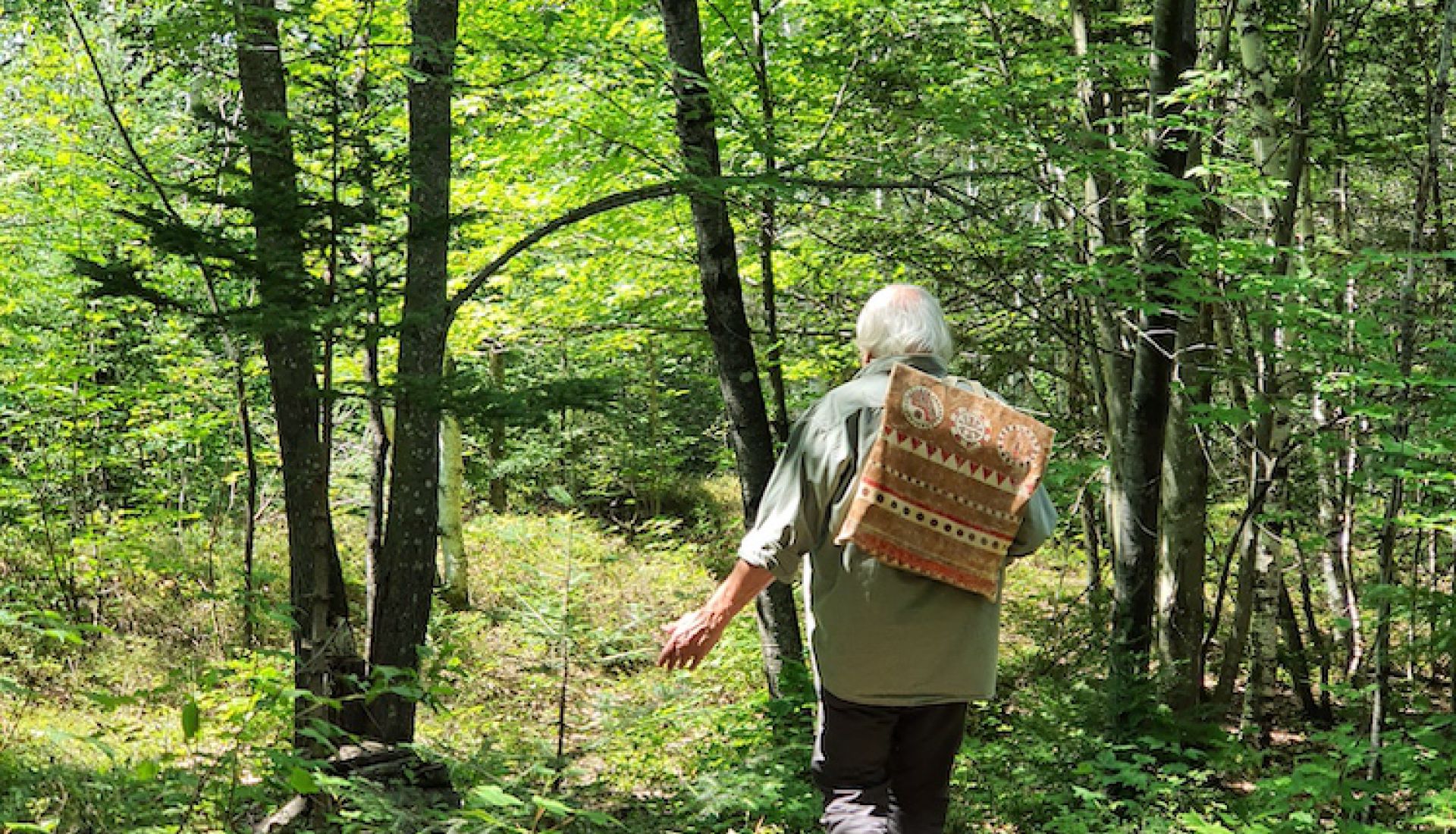Critical Archeological Mediations
A public discussion between Design and Computation Arts students (Concordia University, Seminar: Critical Materiality, prof. Alice Jarry) and Communication students (University of Toronto, Media Archeology, prof. Marie-Pier Boucher)
December 1st, 9:30 am - 10:30 am
[De]obsolescence: Making Futures by Reactivating the Past
With Nathalie Banger (Concordia University), Yung Cheng (University of Toronto), Aryel Craan (Concordia University), Tyler Greiling (University of Toronto), Alec Mathewson (Concordia University), Patrick Pearce (Concordia University), Yilong Zhang (Concordia University)
Keywords: Human scale, Upcycling/Repurposing, [De]obsolescence, Techno-material literacy, Open design & production, Material agency, Maker communities, Speculative design, Resilience
December 1st, 11:00 am - 12:00 pm
From one Material to Another: Translation as a Method for Engaging with Senses and Communities
With Sherene Almjawer (University of Toronto), Janice Cheun (Concordia University), Gabrielle Diaz (University of Toronto), Golriz Farzamfar (Concordia University), Jessica Filippelli (Concordia University), Cassandra Lielbardis, (University of Toronto), Maxime Pigeon (Concordia University), Aniesha Sangarapila, (Concordia University), Ashlee Tan (University of Toronto)
Keywords: Translation, material mediation, transdisciplinarity, methods of collection, material agency, sensations, communities
A large part of practice-based research transpires in form and in the experience of sensory perception. What happens when the studio and our material practices move to public space ? How can research-creation in the making be communicated and experienced ? This activity aims at questionning practice in relation to materials and materiality; objects, technologies, media and techniques; and socio-environmental topics. Students in four interuniversity groups will present their projects and research under beta forms, and give a public account of their work and methods. Groups will develop feedback loops between the practical and theoretical ideas catalyzed in the two seminars. This format aims at renewing the conditions in which creation takes place, is exhibited, and communicated. The two-day activity will involve workshops, round-tables, and open discussion.
[De]obsolescence: Making Futures by Reactivating the Past
With Nathalie Banger (Concordia University), Yung Cheng (University of Toronto), Aryel Craan (Concordia University), Tyler Greiling (University of Toronto), Alec Mathewson (Concordia University), Patrick Pearce (Concordia University), Yilong Zhang (Concordia University)
December 1st, 9:30 am - 10:30 am
What can we learn and reapply from the past to better understand our current-day social-material relationships?
How can repurposing materials and knowledge help to increase our agency as makers and help us find meaning in our roles as designers, consumers and citizens of the world?
Canada has the highest rate of solid waste production per capita in the world at 720 kg annually1. As we speak, buried food waste breaks down in landfills, releasing methane into the atmosphere, and discarded plastics accumulate as microscopic particles in environments and organisms (including humans) across the globe.
The impacts of this waste have been well-established—gases from landfills and incinerators contribute to climate change and smog, while harmful toxins leach into soils and waterways, and entire ecosystems are upended by the global needs of waste management2.
This situation is the result of our on-going decisions and actions, which reflect how we value, produce, distribute, maintain, and dispose of material goods. Today, we ask: Is it possible to improve our current situation by examining the paths we took to get here?
The culture of making, born out of necessity and manifest throughout human evolution, has seen a resurgence in recent years which underscores the importance of material literacy to individual and community resilience. By learning from and reviving materials, technologies, knowledge and practices that have previously been deemed obsolete, can we move towards a more humanist and sustainable material culture?
This round-table and workshop brings together designers and media archeologists around the themes of upcycling, obsolescence, material literacy and maker communities. We examine making practices against their historical, political and economic contexts to question their potential to increase human agency and generate new meaning in the ways in which we connect to the material world.

From one Material to Another: Translation as a Method for Engaging with Senses and Communities
With Sherene Almjawer (University of Toronto), Janice Cheun (Concordia University), Gabrielle Diaz (University of Toronto), Golriz Farzamfar (Concordia University), Jessica Filippelli (Concordia University), Cassandra Lielbardis, (University of Toronto), Maxime Pigeon (Concordia University), Aniesha Sangarapila, (Concordia University), Ashlee Tan (University of Toronto)
December 1st, 11:00 am - 12:00 pm
Considering that materials carry potential for agency, interactions and affects, how can material translation create new human experiences?
It is not things in themselves, but what happens between things, where the life of them is to be sought.
Black Mountain College prospectus (ca. 1943)
It is perhaps because translation is often viewed as a simple rendering from one language into another that we lose sight of how it permeates most creative practices. Whether it be in the arts or in design, translation is not a clear window through which we see the original; on the contrary, it is a matrix that renders visible the agency of materials, and highlights the translator’s role which is by no means a passive one.
This conference sets forth various ways in which materials are deployed creatively through methods of translation, and more importantly, how they are shaped by it. Some of the works discussed point toward translation as a nexus for change in how we perceive and share sensations: using the urban soundscape in hospitals, or addressing mental health through haptic perception. Others are concerned with translation as a way to build bridges between communities: strengthening the social stability of Tamils in Montreal through sound and imagery, or mapping a constellation of references around fellow students. But they all share an interest for translation as something more than a transparency; a true praxis that can be deployed to create meaning of its own.
Translation is movement: from French to English, from Critical Materiality to Media Archeology, from Montreal to Toronto. The goal is to explore what is gained and what is lost in transit from one material to another. Does it truly allow for new social bonds? Is translation mediated in turn by its materials? How does a different spatial and cultural context shape its meaning? In addressing these questions collectively, through both practice and theory, this conference aims to shed light on the ways in which translation can affect human experiences.
Photos: Projects by Nathalie Banger, Janice Cheun, Aryel Craan, Golriz Farzamfar, Jessica Filippelli , Alec Mathewson, Patrick Pearce, Maxime Pigeon, Aniesha Sangarapila



